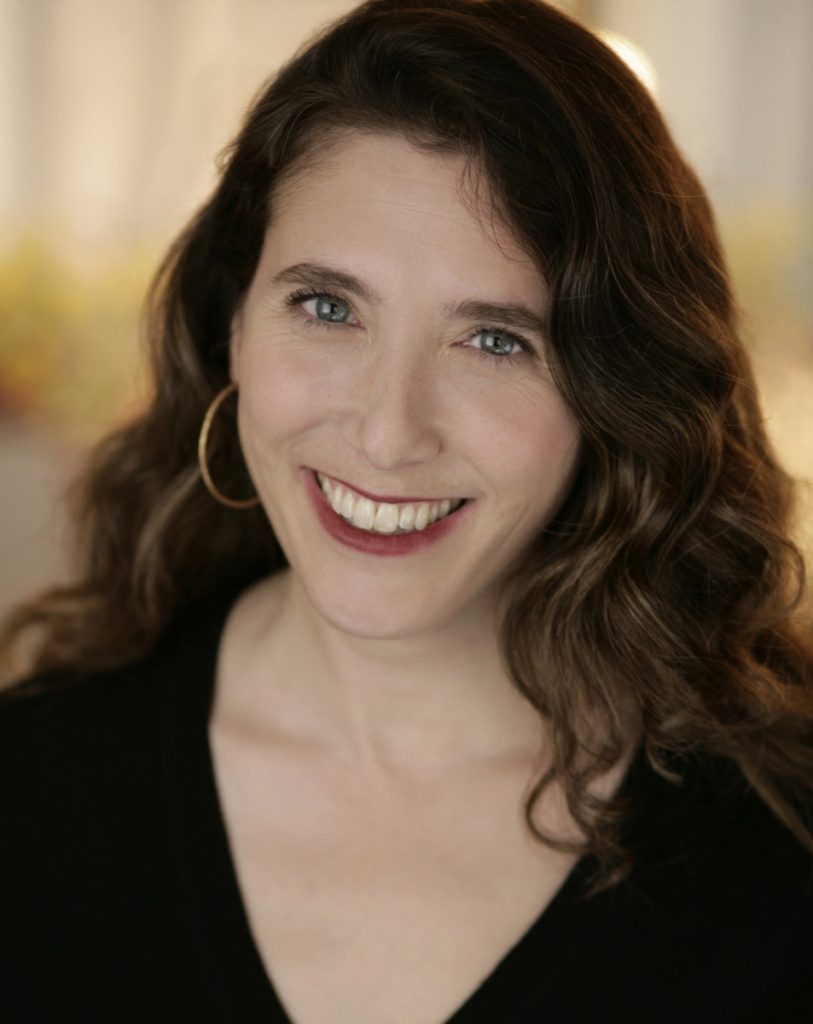Arden Ryan
Contributing Writer
Human relationships, in every form and with every complex emotion attached, appear again and again in Jennifer Senior’s journalism. She feels she may have missed her calling to be a psychologist, but still finds ways to weave an underlying passion for psychology and sensitivity for relationships into her work.

That sensitivity and passion went into her 2021 piece in The Atlantic, “Twenty Years Gone,” about the lingering grief of a family who lost a son in 9/11, and how relationships helped create meaning. It garnered Senior a Pulitzer Prize in Feature Writing.
Recently, she’s been pondering friendship in the modern age and an American society seeming to pull people farther apart.
“Modern life really conspires against friendship, but that is precisely why we need it,” said Senior, a Pulitzer Prize-winning writer for The Atlantic.
At 10:45 a.m. today in the Amphitheater, Senior will discuss the importance of such friendships and maintaining togetherness despite the forces separating us, bringing her perspective to Week One’s Chautauqua Lecture Series theme, “On Friendship.”
Americans have more choice in their lives than ever before, able to curate them to individual desires in what Senior describes as a “culture of radical individualism.” Marrying, having children, and pursuing a career no longer progress on the same timetable for everyone.
“We now live in an era of radical individual freedoms,” Senior wrote in “It’s Your Friends Who Break Your Heart,” a 2022 article for The Atlantic. “There’s little synchrony to our lives.”
At the same time, Americans are spending less time in personal contact with others. Attendance is decreasing at places of worship across the country, Senior said, noting similar decreases in civic participation, in volunteering, and in simple conversations with neighbors. This fact, she said, can largely be attributed to the increasing time Americans are spending online, “foregoing embodied contact.” That contact and those friendships, however, are vitally important to good health and human development.
With increasing discord between lifestyles and life directions, the already fragile and impermanent nature of friendship is under further pressure, Senior said. The difficulty in keeping friends is increasing. Yet the “customized nature” of modern life makes those friendships more important than ever, Senior wrote. Reliance on friends is stronger than ever, and so should be the effort put into keeping them.
“We’re designed to bond with other people. It’s how human beings learn and how they grow,” Senior said. Living such a “fractured, atomized existence,” with working remotely and engaging solely online the new societal norm, those bonds are becoming more difficult than ever to maintain.
Taking deliberate action to sustain friendships, making it a habit to stay in touch and not fall into passivity, is crucial to ensure those friends will be there when you need to rely on them most, Senior said.
“We need to have friendship anniversaries and annual road trips and reunions,” Senior said. Rituals with friends help to prioritize them, which Senior said more Americans should be doing, as families and careers can pull in the opposite direction.
Senior believes being “more demonstrative” would further strengthen our friendships, sharing words of care and affection as one might do with a romantic partner.
“We tell our spouses that we love them, and we tell our friends this much less, but they are also love relationships. We ought to be more expressive in our friendships,” Senior said, as an act as simple as telling a friend how much they are appreciated can have an impact.
“The paradox at the heart” of friendship, Senior said, is its fragility. The voluntary nature of friendship, making it fragile, also makes it special. If one were to have a binding or legal contract to a friend, as with a married partner, it would cease to be how friendship is defined.
Senior notes, however, that a cultural shift may be occurring, with more friends making binding commitments to each other, as with family. Friends are being increasingly “recruited” in family roles, acting “as siblings and cousins, even parents would,” Senior said, as families often live far separated, children going to college and working at a distance from home.
Friendships may be qualitatively different from other types of relationships, but Senior argues that perhaps the two shouldn’t be so unalike.
“Maybe we should really think about being very committed to our friends. They should sit somewhere closer to where our family and spouses sit. We should make them top priority.”




